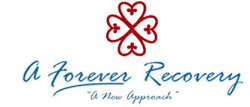New York, NY (Top40 Charts) 'Part of the commitment we make to helping our patients overcome their substance abuse issues is assisting them in a continued recovery strategy after they graduate the treatment program at our rehabilitation center,' commented Per Wickstrom, CEO of AFR.
Those who might know someone who is recovering from addiction or are struggling with possible relapse themselves might find A Forever Recovery's latest blog post to be full of valuable information on overcoming those urges and remaining substance-free. Following recent neuroscience research into brain activity and altered thought patterns that might make some people more susceptible to giving into the desire to use, A Forever Recovery highlights some of the key aspects of continued recovery from addiction.
"Part of the commitment we make to helping our patients overcome their substance abuse issues is assisting them in a continued recovery strategy after they graduate the treatment program at our rehabilitation center," commented Per Wickstrom, the CEO of A Forever Recovery. "This comes mostly in the form of our extensive Aftercare Department, which helps with finding support groups, sober living arrangements and even sometimes job placement. Relapse prevention is an important part of the After Care Plan for all of our patients."
In a study conducted by researchers at the University of East Anglia published April 28th, their findings indicated a correlation in altered structure and function of the brain, particularly the reward center, and the use of substances. This study focused on cocaine use, but joins many other studies that have concentrated on the use and abuse of other drugs, with similar results. The conclusions of this study, published in The Journal of Neuroscience, identified a molecular mechanism in the reward center of the brain that might influence the likelihood of relapse in an individual that is recovering from cocaine addiction.
"Relapse among cocaine addicts is a major problem. We wanted to find out what causes it," said the study's lead researcher Dr.
Peter McCormick, of UEA's School of Pharmacy. "Neuropeptides are messenger molecules that carry information between neurons in the brain. They form the brain's communications system. We looked at the interaction between two particular neuropeptides in the part of the brain that is to do with reward, motivation and drug addiction among other things. We showed that cocaine disrupts the interaction between receptors and these changes could increase the risk of relapse under stressful conditions."
About A Forever Recovery,
Battle Creek
A Forever Recovery, a holistic treatment center for substance abuse located in Southwest Michigan, offers several options to their patients, allowing them a certain level of freedom in developing a rehabilitation program that will be most effective for their needs. Part of every patient's recovery strategy is Relapse Prevention, which focuses on various tools and skills that will allow an individual in recovery from addiction to face potential relapse-causing situations with confidence and strength, helping them to discover the ability to remain substance-free regardless of what life might throw at them.
























